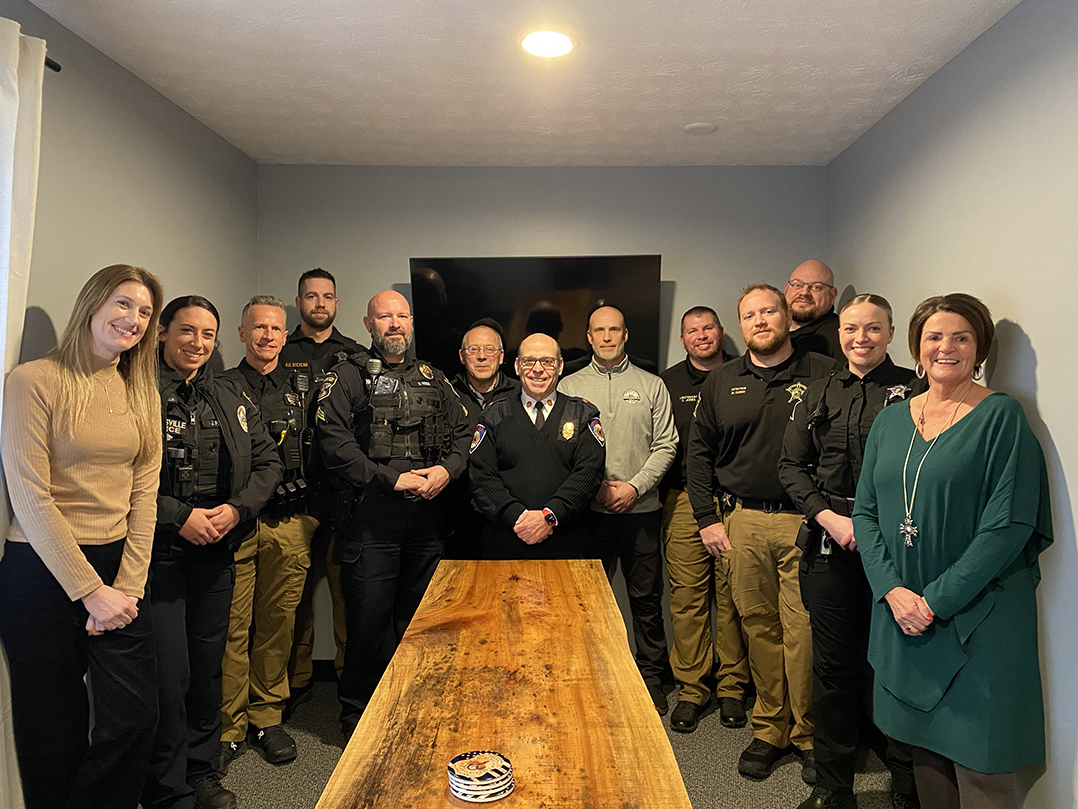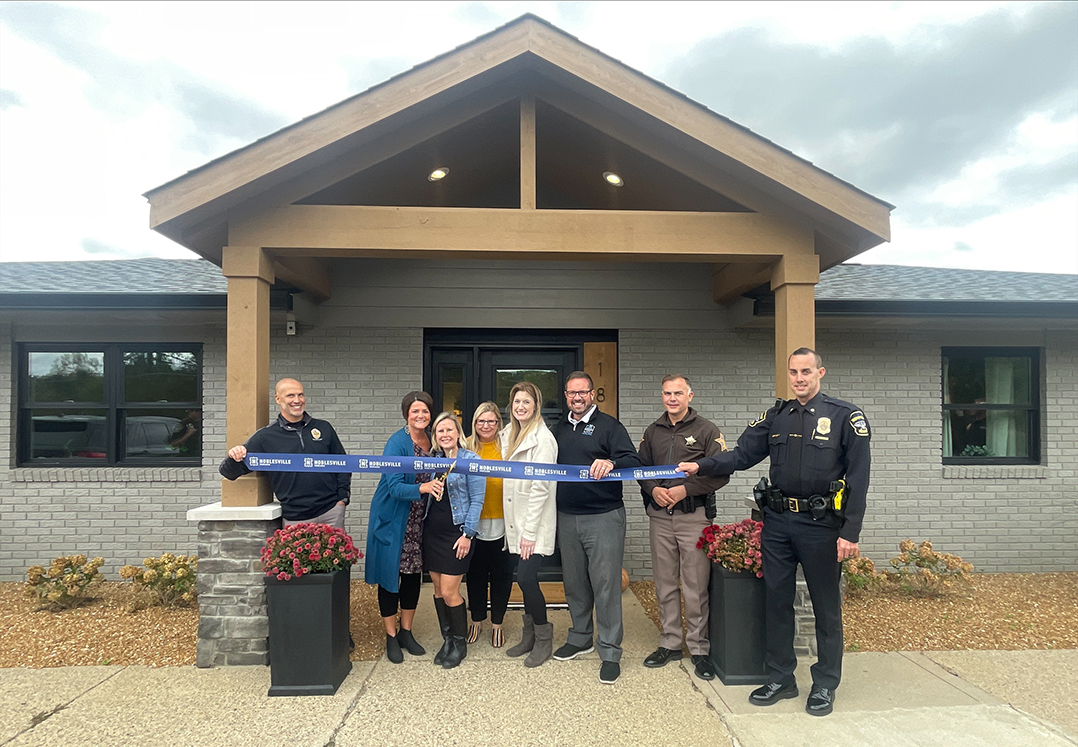Matt Griffin, who retired in 2023 after 23 years with the Noblesville Police Department, like many first responders, has struggled with mental health challenges. Moreover, he felt shamed and embarrassed by them.
“Back when I got hired, you didn’t talk about anything. You just simply went onto the next call. That’s how we got through it,” Griffin said. “We joked and laughed about it and went out to the bar after work or on our next days off. Years and years and years and years of doing that and repeating the trauma, not getting help for it (was detrimental).
“You know that something’s wrong, but there’s just a stigma and shame with it to where it’s an embarrassment.”
Fortunately for Griffin and other people like him, a therapy practice in Noblesville specializing in trauma care for first responders wants to erase the stigma for people who face mental health challenges.

Susan Sherer-Vincent is the owner of Frontline Counseling, a trauma-informed therapy practice. She said the environment is designed to be a “safe place for first responders.” The counseling services are open to anyone, not just first responders.
Sherer-Vincent, a licensed clinical social worker, licensed marriage and family therapist and certified alcoholism counselor, works with Griffin. Griffin has struggled with sleeping, alcoholism, depression and suicidal thoughts throughout his career as a police officer.
Sherer-Vincent founded Frontline Counseling Sept. 15, 2023, at 1811 S. 10th St. She said she wanted to build a team of “culturally competent therapists” who have immersed themselves in first responders’ culture through ride-alongs, being at the department and attending trainings and workshops. Counselors at the practice participate in debriefings after traumatic incidents.
“I’ve known Susan for years, so that helped, but I still had to get through my own difficulties of opening up to get that help,” Griffin said. “But to have someone who for a group knows what we’ve been through, building that rapport with us, whether it be ride-alongs or showing up to roll calls, things like that make it easier to speak with someone who knows what you’ve been through, gone through, at least has an idea of it.”
Sherer-Vincent said when trauma isn’t addressed or treated, it can become complex PTSD.
“So, for Matt and for some of the other first responders that I’ve worked with, they recover loudly,” she said. “That gives others permission to get treated for some of the trauma and things that they see.”
NPD Sgt. Brice Swart, who oversees the Officer Wellness program at NPD, said officers used to work on things on their own because there weren’t many resources available. Over time, he said resources became a norm for the next generation of law enforcement that benefits now.
“I can’t emphasize enough the support from the leadership side of things,” Swart said. “Because it’s very important to have them say, ‘This is one thing that’s very important to our department as a whole, moving forward to make sure that we implement these things. We support these types of things and we put them in place because we honestly care and want to maintain the wellness of our personnel.’”
Sherer-Vincent said with supportive leadership, officers don’t have to worry about losing their jobs if they suffer from PTSD.
“We’ve done, gosh, a lot of work in the last 20 years to really change the culture and to bring mental health awareness to first responders,” Sherer-Vincent said.
Sherer-Vincent previously worked in private practice since 1982 and has been working with first responders for 25 years.
“There’s such a need and people don’t realize the hard job that they do and the things that they see, and what I want, I want officers, firefighters, I want them to come in sooner (for help),” she said. “I want them to come in when they first see a trauma so they aren’t wounded and walking around wounded for years and years and years.”

OTHER WELLNESS PROGRAMS
Frontline Counseling isn’t the only resource for local first responders. Sherer-Vincent said Hamilton County Sheriff Dennis Quakenbush, Carmel Police Department Chief Jim Barlow and NPD Police Chief John Mann started wellness programs for their officers and staff. Sherer-Vincent helped design the programs at each department, she said.
Hamilton County Coroner Jeff Jellison also started a wellness program this year, Sherer-Vincent said.
NPD has an Officer Wellness Program that Swart oversees. His position overlooking the program was developed three years ago.
The program provides resources for officers/staff to maintain self-care, personally and professionally, Swart said. It focuses on the mental, physical and financial health of officers/staff, their families and retirees.



